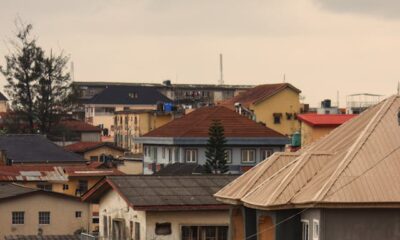Features
Chibueze Damian (Baba Akara) Talks to Us About Selling Street Food for 25 Years in Today’s Doing Life With…
Doing Life With… is a BellaNaija Features series that showcases how people are living, working, travelling, journalling, taking care of their families and… everything in between. We are documenting the lives of all people and ensuring everyone is well-represented at BN through storytelling.
Last week, we had a conversation with Opeyemi Famakin. Did you miss it? Read it here.
This week, Chibueze Damian, who has been in the Akara business for 25 years and is now known as Baba Akara is sharing his business journey with us, the challenges he faces and the best part of the business. Enjoy!
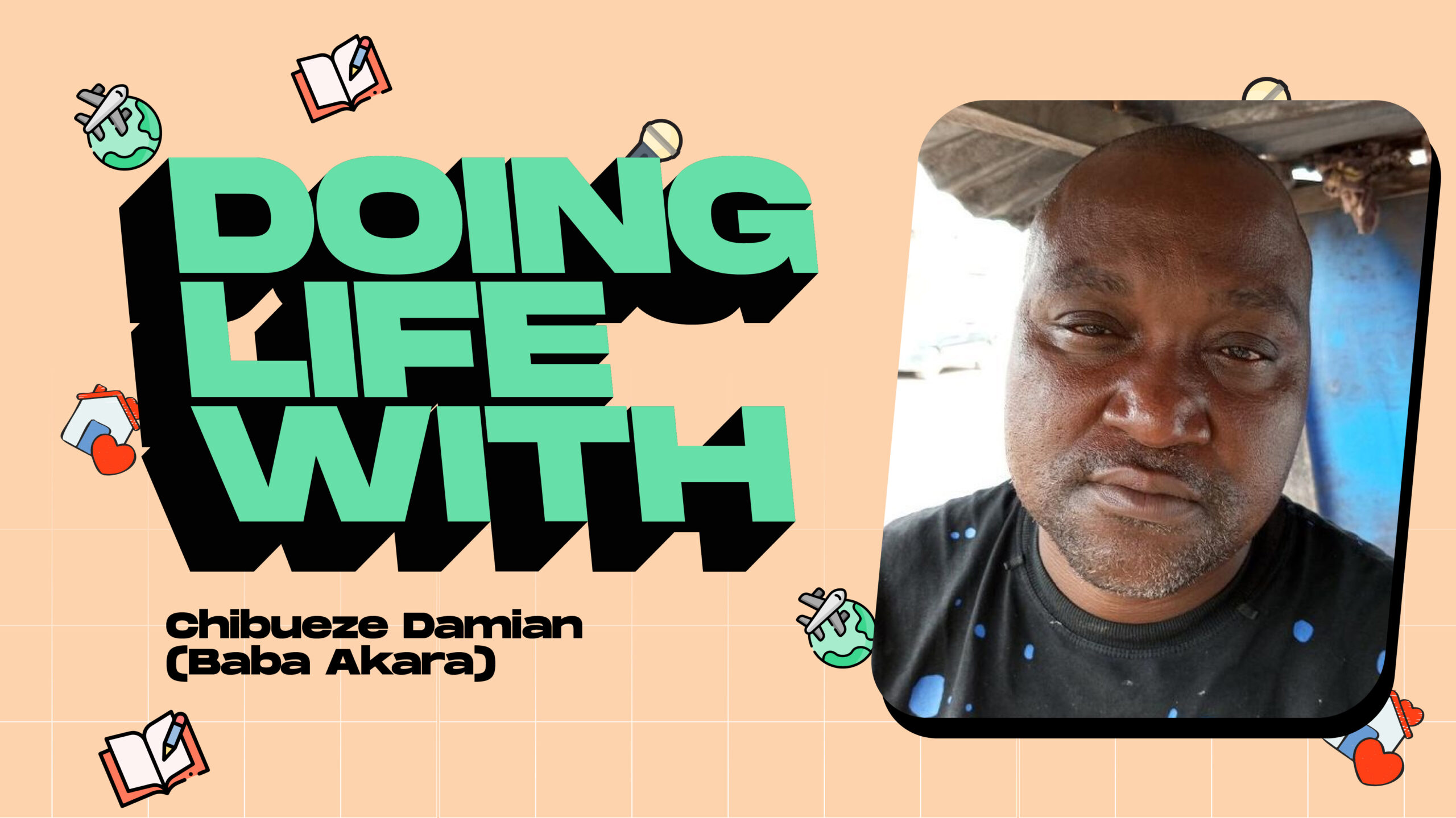
Hello Baba Akara, how are you feeling today?
I am feeling fine and okay. I give appreciation to God.
Give us a glimpse into your background
I am from Abakaliki, Ebonyi State. I came to Lagos to sell food and build my own restaurants.
How’s that going?
It’s all good, we thank God.
What food have you been selling since you came to Lagos?
I’ve been making and selling Akara. That’s why I’m called Baba Akara.
Interesting! How long have you been doing this?
About 25 years ago. I started this business in 1998.
Wow, that’s a long time ago. How did it come about?
When I arrived in Lagos, I was with my boss who was training me on starting a food business. When it was time for him to settle me by giving me some money to start mine, he refused. It was a canteen where Igbo food such as rice, beans, eba, bitter leaf soup and others were sold. When I realised he had no intentions of settling me, I left and made up my mind not to roam the streets. So I joined my wife, who was my girlfriend then, to start frying akara. My girlfriend had experience selling akara because her mom was also an akara seller. So I just joined her, and then we started growing. We both hawked akara for a brief period of time before we got other employees to start hawking for us. Eventually, My boss who didn’t settle me came back to work for me.
How did that happen?
His business failed and then he came to me for help. So I did by employing him.
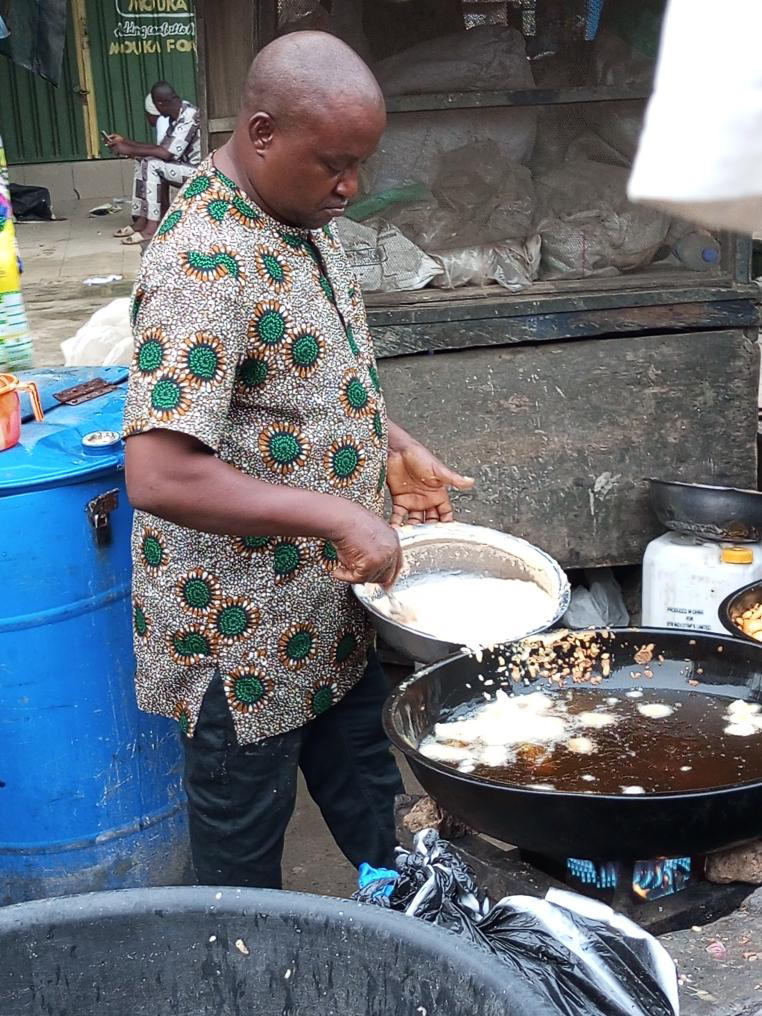
What business lessons have you learned along the way?
Every business will eventually grow if you have focus. Exert a lot of effort and have hope, and you will achieve something with the business. You don’t start a business today and expect it to bloom tomorrow. It takes process. Don’t think because you are having little sales, you should pack up. No, it’s a gradual process.
So you’ve been doing this for close to three decades. Why did you stick to it for so long?
It was there I was training my children; they are my greatest source of inspiration. If I left the akara business, how would I train my children? Being in the akara business has helped me sort out a lot of my bills. I have two children studying in the university and you know how expensive that is. I rented a house for them, and even send them pocket money every week.
Impressive! What challenges have you faced since you started the business?
There’s the challenge of agberos and informal taxes. Anytime I am asked to pay for stuff, I pay immediately; I don’t argue with them. We also faced huge challenges in getting employees to help us. I found out long ago that many people don’t like working. They’d rather be spoon-fed and life doesn’t work that way. So getting workers to help us was a really tough challenge. We overcame this through personal effort. I’d wake up earlier and start on time. Most times, my two children help a lot when they are back home from the university for the holidays.
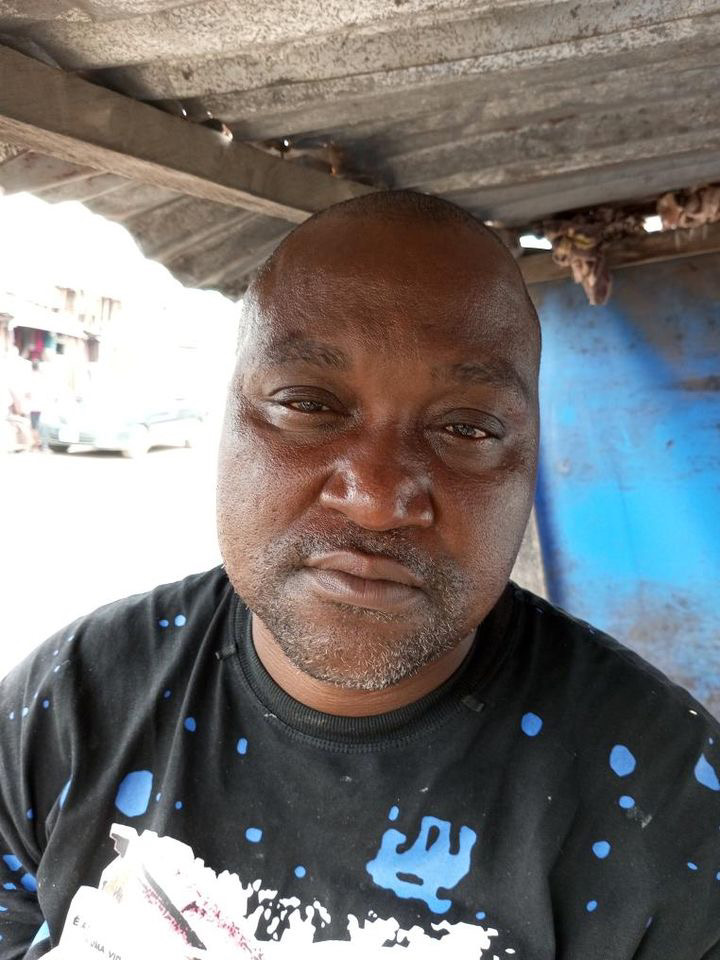
Hygiene is a very big deal when it comes to street food, what measures do you put in place to maintain good hygiene and safe food practices?
“This is public food, You need to be neat,” I keep this at the back of my mind always. Before we start and after each day’s work, we wash the frying pan, trays, spoons, buckets and bowls. We also wash our grinding machine every day before we grind the beans or pepper. We wash our drums where we store water every week. We don’t use bare hands to touch our akara or bread before it is served. Our hands are covered with nylon every time we need to touch the food we are sending out.
What does a typical day in your life look like?
I wake up by 3:00 a.m., do my personal hygiene and leave home to shop by 4:00 a.m. The next thing I do is wash the quantity of beans we will sell for the morning session. After washing it, Jeremiah, my son, goes over to the grinding mill to grind the beans. We start frying and selling by 6:00 a.m. From 6:00 a.m. to 9:00 a.m., there is no time to sit down because we serve a lot of customers and mostly retailers during this time. Then I take a little rest until the afternoon when a lot of customers (resellers) would troop in again. After the afternoon session is done, we pack up and then I close by 6 p.m. Go home, eat and be in bed by 8:00 p.m.
What are the little things in your everyday life that bring you joy, get you excited or make you feel alive?
What makes me glad is the assistance I get from God every day. I also watch comedy skits on Facebook when I’m back from work. They make me happy.
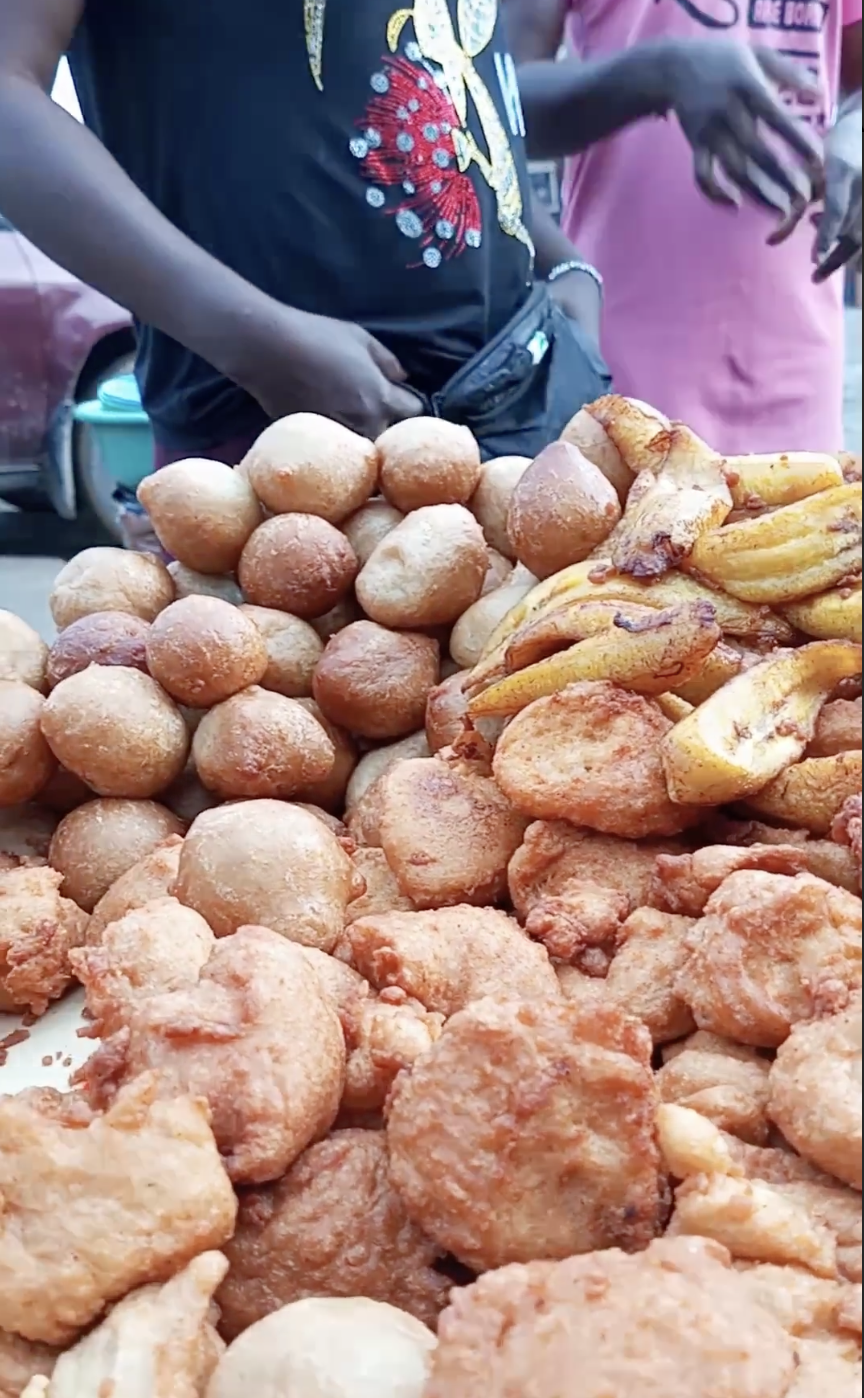
What are some highlights since you started the business?
When my children finished secondary school and entered university and when I built a house; these moments made me proud.
We’re also proud of that. What’s the best part of being Baba Akara?
The best part of being Baba Akara is the type of people I get to meet every day: top business people, politicians – just many diverse people.
Thank you for being a part of Doing Life With…
Thank you, BellaNaija, for having me.
_
Many thanks to Baba Akara for having this conversation with us. Do you love this content, have any feedback for us, want to be a BellaNaija Features contributor or want to be featured on Doing Life With…? We’d love to hear from you. Shoot us an email: [email protected]
Join us on Saturday for the next episode!




